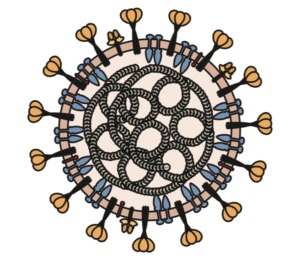- Joined
- Mar 6, 2019
- Messages
- 34,260
- Reaction score
- 34,502
- Location
- PNW
- Gender
- Male
- Political Leaning
- Other
I struggled with where to post this. Breaking News? but it seemed somehow appropriate here, as it has to do with the future of communicable disease:
The clusters in the two cities appear to be unrelated to each other, the report said. The 30-day mortality in both outbreaks combined was 30%, although other health conditions may also have played a role.
Candida auris, which was first seen in the U.S. in 2013, is "resistant to multiple anti-fungal drugs that we have, and it's also resistant to all the things that we use to eradicate bacteria and fungal strains in the hospital," Dr. Neeta Ogden, an internal medicine specialist, told CBS News in 2019 after health officials issued a warning about the emerging threat."
Its relation to COVID may seem tenuous, but it is not nonexistant: "Candida auris infections have been reported in hospitals and long-term care facilities around the world. People who have been hospitalized a long time or who have breathing tubes, feeding tubes or central venous catheters appear to be at highest risk. The fungus can cause wound infections or bloodstream infections, which can be fatal." One of the epicenters of the outbreaks is Texas, where COVID is also spreading rapidly. The confluence of those two outbreaks is alarming and would be devastating.
Outbreaks of a drug-resistant superbug fungus spread in two U.S. cities, CDC reports (CBS)
"Outbreaks of a drug-resistant "superbug" fungus spread among patients in hospitals and long-term care facilities in Texas and Washington, D.C., the Centers for Disease Control and Prevention reported Thursday. The fungus, Candida auris, preys on people with weakened immune systems. The CDC said evidence suggests these cases involved person-to-person transmission, which would be a first for the U.S.The clusters in the two cities appear to be unrelated to each other, the report said. The 30-day mortality in both outbreaks combined was 30%, although other health conditions may also have played a role.
Candida auris, which was first seen in the U.S. in 2013, is "resistant to multiple anti-fungal drugs that we have, and it's also resistant to all the things that we use to eradicate bacteria and fungal strains in the hospital," Dr. Neeta Ogden, an internal medicine specialist, told CBS News in 2019 after health officials issued a warning about the emerging threat."
Its relation to COVID may seem tenuous, but it is not nonexistant: "Candida auris infections have been reported in hospitals and long-term care facilities around the world. People who have been hospitalized a long time or who have breathing tubes, feeding tubes or central venous catheters appear to be at highest risk. The fungus can cause wound infections or bloodstream infections, which can be fatal." One of the epicenters of the outbreaks is Texas, where COVID is also spreading rapidly. The confluence of those two outbreaks is alarming and would be devastating.




